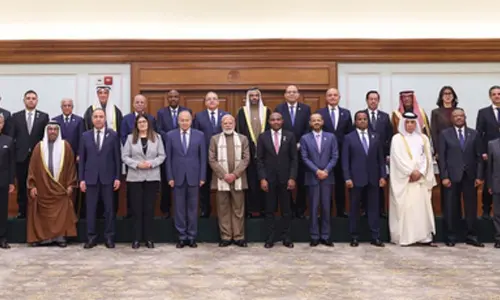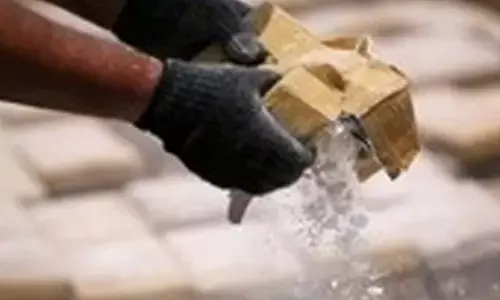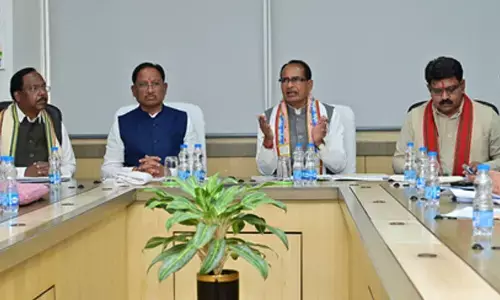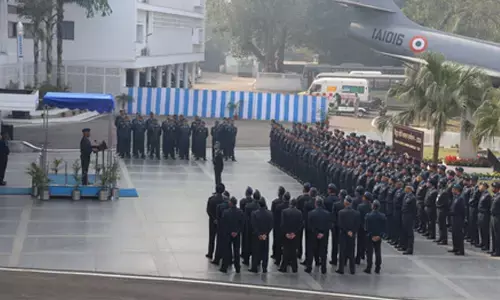Rajamahendravaram: Tussar silk cheers Chinturu tribals
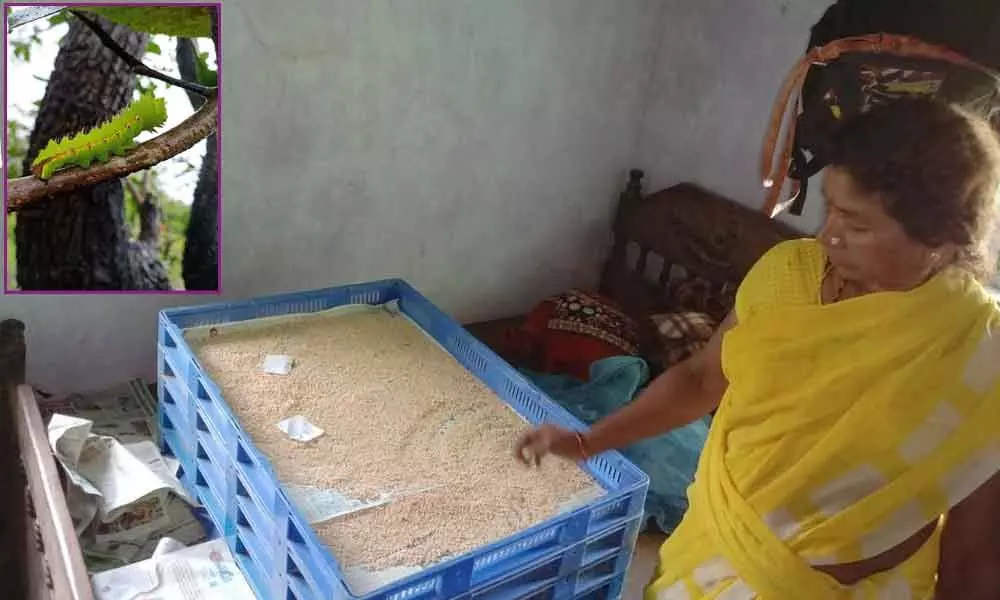
Tussar silk cheers Chinturu tribals
Tussar silk, popularly known as wild silk, is extracted from various varieties of silkworms from deep forest in the Agency areas of East Godavari district.
Rajamahendravaram: Tussar silk, popularly known as wild silk, is extracted from various varieties of silkworms from deep forest in the Agency areas of East Godavari district. The collection of these silkworms is a boon to the tribal populace for their livelihood under the purview of Integrated Tribal Development Agency (ITDA) of Chinturu in East Godavari.
Over 1,600 tribal families are benefitted in the mandals of Chinturu, Kunavaram and Vara Ramachandrapuram with tussar activities, which is a forest-based industry. Tussar silkworm collection is widely seen in the forest areas where Sal, Nalla Maddi (T Tomentosa) and Tella Maddi (T Arjuna) variety trees are available.
The tribal families get an annual income of Rs 30,000 through tussar silkworm collection from the deep forest. The ITDA Chinturu is striving to produce tussar fabrics in the brand name of Girijan Chinturu Brand Tussar Fabric shortly. Tussar cocoons are collected from the 4,000 hectares of the forest spread in three mandals and the annual tussar cocoon production is worth Rs 40 lakh to Rs 45 lakh.
Speaking to The Hans India on Thursday, Sericulture Department deputy director BMV Rama Raju said the department is providing technical support to tribal farmers along with marketing facility to their tussar cocoons.
The cost of 100 Tussar Disease-Free Layings (DLFs) i.e eggs is Rs 1,200 and the department is providing 90 per cent subsidy and tribals share is 10 per cent, he added.
Moreover, the department is imparting training in reeling and spinning to the women entrepreneurs of Scheduled Tribes.
As many as 10 grainages, which buy the cocoons from the tribesmen, were established in the private sector by the tribal women groups and the department is providing Rs 2 lakh as working capital to each group.
These grainages purchase the cocoons from the farmers and produce DLFs and they earn a profit of Rs 1 lakh to Rs 1.75 lakh per annum. The tussar cocoons are auctioned in which bidders from Maharashtra, Jharkhand and Chhattisgarh and Tussar Raw Material Bank of Ranchi participate. "There is a need to set up silk reeling units in private sector and the cocoons having immense potentiality to convert them into frabric and the silk yarn is the basic material for weavers," said Deputy Director BMV Rama Raju.
ITDA is planning to develop reeling sector in association with Girijan Cooperative Corporation (GCC) to sell its fabric through its outlets.
Traditional weavers of Shebganj in Bihar, Resham Nagar in Jharkand and Bilaspur (Champa) are requested to sing an MOU with Chinturu tribals to make fabric in the South Indian style, he said.
Meanwhile, weavers of Sahbganj and Bilaspur made some sarees with some designs and the ITDA selected some varieties for weaving on a massive scale.
Ashtiva Mahila Samithi of Bilasapur is going to sign an MoU with ITDA shortly.










